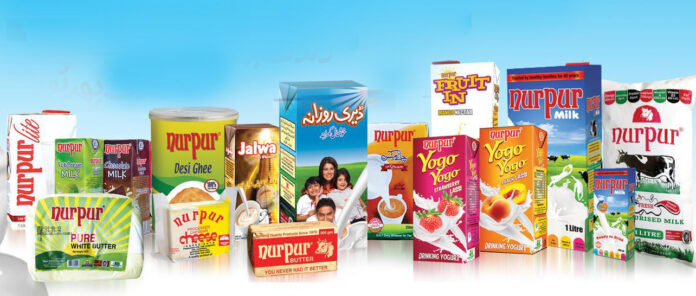Less than a decade ago, the parent company of Nurpur Pakistan was taken over by Fauji Foundation and turned into Fauji Foods. What should have proven to be an easy turnaround turned into a long slog that needed to be bailed out and funded over and over again to stay afloat. After nearly a decade, it seems Fauji Foods is finally living up to its true potential. The last time the company saw a profit was when it was called Noon Pakistan and the logo was a rendition of the Hebrew letter for alif.
Just two years ago, the company registered a loss of Rs 2.2 billion and saw its accumulated losses reach Rs 18.5 billion. From those lows, Fauji Foods seems to have taken a turn for the better with two consecutive years of profits.
2023 closed out with profits of Rs 61 crores which was improved in 2024 to Rs 66 crores. With such a momentous change, it is clear to see that the company is on a path to recovery. But is this all there is to it? A detailed analysis of quarterly performance shows that the profits could have been better if it had continued on the path it was on back in September 2024. A spoiled opportunity, an impact of the boycott against the company or just luck. Whatever the reason maybe, the numbers show that the company could have had it so much better.
Noon Pakistan to Fauji Foods
In 1966, Noon Pakistan was set up by Manzoor Hayat Noon who developed the company under the brand name of Nurpur Pakistan. Over its history, the company was able to build on its product portfolio and profitability as it expanded into milk, butter, cheese, cream, and ghee. Even though the net profit margin for the company hovered between 1% to 3%, stable profits were being earned which kept accumulating the unappropriated profits for the company. However, things changed in 2013 when losses were seen of Rs. 13 crores. The company had crossed into the red before as well but this time the losses were here to stay. This was followed by a period of continued losses as the company tried to stabilize in tumultuous times. The content in this publication is expensive to produce. But unlike other journalistic outfits, business publications have to cover the very organizations that directly give them advertisements. Hence, this large source of revenue, which is the lifeblood of other media houses, is severely compromised on account of Profit’s no-compromise policy when it comes to our reporting. No wonder, Profit has lost multiple ad deals, worth tens of millions of rupees, due to stories that held big businesses to account. Hence, for our work to continue unfettered, it must be supported by discerning readers who know the value of quality business journalism, not just for the economy but for the society as a whole.To read the full article, subscribe and support independent business journalism in Pakistan









